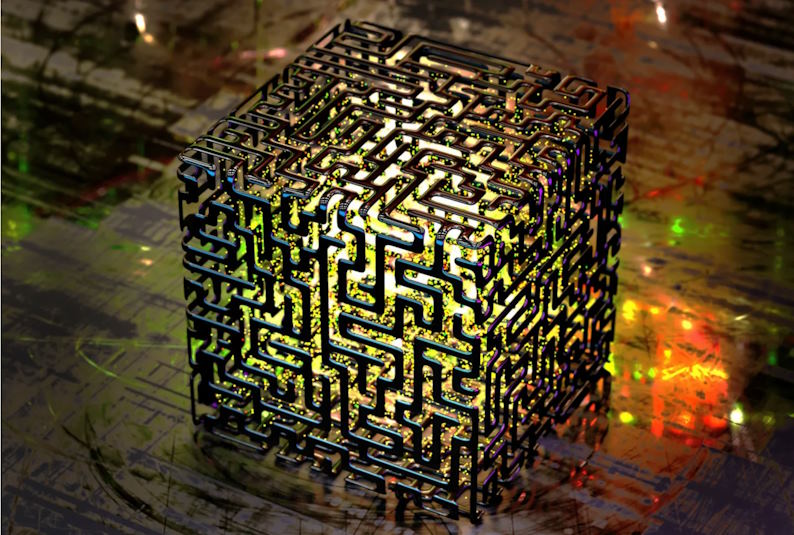As blockchain technology continues to revolutionize industries with its decentralized and secure nature, a looming threat emerges on the horizon in the form of quantum computing. Quantum computing, with its ability to process complex calculations at unprecedented speeds, poses a formidable challenge to the cryptographic foundations that underpin blockchain security.
Quantum Computing Threats to Blockchain
Shor’s Algorithm and Its Impact on Current Cryptographic Algorithms
At the heart of the quantum threat to blockchain lies Shor’s algorithm, a groundbreaking mathematical concept that poses a direct challenge to the cryptographic algorithms safeguarding the integrity of blockchain networks. Shor’s algorithm, when executed on a sufficiently powerful quantum computer, has the potential to unravel widely used cryptographic techniques, including the RSA and ECC algorithms. These algorithms, which form the backbone of blockchain security, rely on the difficulty of factoring large numbers—a problem that quantum computers can solve exponentially faster than classical computers. As quantum machines advance, the once formidable protection offered by these cryptographic methods becomes increasingly susceptible to compromise, ushering in a new era of vulnerability for blockchain systems.

Vulnerabilities in Common Blockchain Encryption Methods
Blockchain’s security hinges on robust encryption methods that ensure the confidentiality and integrity of data. However, the advent of quantum computing introduces vulnerabilities to these encryption methods. Hash functions, commonly used for data integrity in blockchain, may be susceptible to quantum attacks. Quantum computers could potentially break the unforgeable links between blocks, leading to the manipulation of data and compromising the immutability that is a hallmark of blockchain technology. As quantum capabilities progress, the encryption landscape of blockchain requires urgent reevaluation to counteract the vulnerabilities that may arise.
Theoretical Scenarios of How Quantum Computers Could Compromise Blockchain Security
Delving into the hypothetical, envision scenarios where quantum computers, armed with their unprecedented computational power, could compromise blockchain security. Quantum attacks could undermine the consensus mechanisms by efficiently solving cryptographic puzzles, potentially enabling malicious actors to take control of a blockchain network. Moreover, the prospect of retroactively decrypting past transactions looms, challenging the very notion of blockchain immutability. Exploring these theoretical scenarios sheds light on the urgency of developing quantum-resistant cryptographic solutions to fortify the foundation of blockchain security against an uncertain quantum future.
Challenges in Implementing Quantum-Resistant Solutions
Adoption Challenges for Post-Quantum Cryptographic Algorithms
While the development of post-quantum cryptographic algorithms holds promise for fortifying blockchain against quantum threats, their adoption faces significant hurdles. Transitioning from existing cryptographic standards to post-quantum alternatives requires meticulous planning and seamless integration into blockchain protocols. Resistance to change, concerns over compatibility, and the need for extensive testing present formidable obstacles to the swift adoption of post-quantum cryptographic algorithms. Convincing the blockchain community to embrace these new standards is a critical challenge in the race against quantum advancements.

Potential Limitations and Trade-offs in Implementing Quantum-Resistant Solutions
Implementing quantum-resistant solutions isn’t without its share of complexities. Post-quantum cryptographic algorithms often demand increased computational resources, potentially impacting the efficiency and speed of blockchain networks. Striking the right balance between security and performance becomes a delicate challenge. Additionally, the very nature of quantum-resistant algorithms may introduce new vulnerabilities or entail trade-offs that necessitate careful consideration. Addressing these potential limitations requires a nuanced approach to ensure that the cure for quantum threats doesn’t inadvertently weaken other aspects of blockchain security.
The Need for Industry Collaboration and Standards to Address Quantum Threats
In the face of quantum threats, the imperative for industry-wide collaboration becomes apparent. Establishing standardized protocols for quantum-resistant solutions is crucial to avoid fragmentation and ensure interoperability across various blockchain platforms. Collaboration among blockchain developers, quantum researchers, and regulatory bodies is essential to create a unified front against the quantum challenge. By fostering a collaborative environment, the industry can collectively navigate the complexities of quantum-resistant implementations and work towards a more secure future for blockchain technology.










































